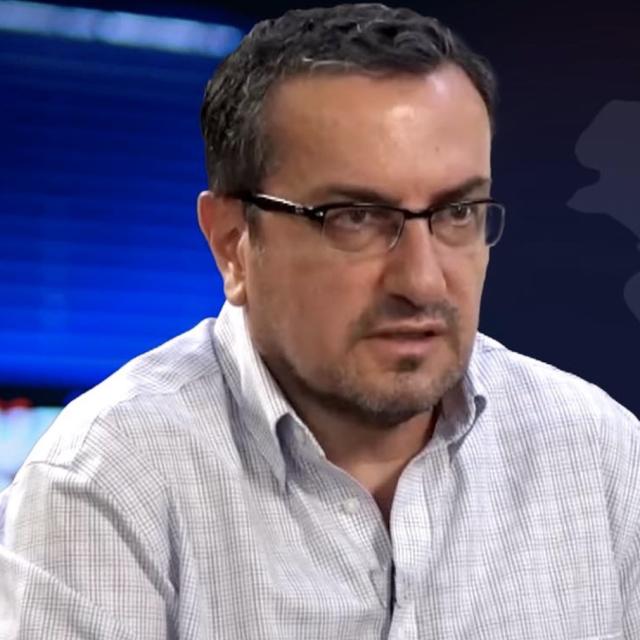Professor Grigoryan has a wide range of research interests. One of his principal foci is interventions in state-minority conflicts and particularly the problem of interventions producing escalated violence against minorities. Professor Grigoryan’s research has also dealt with ethno-federal systems as instruments of conflict resolution. Another item on his research agenda is the nexus linking regime type and foreign policy behavior. One particular topic Professor Grigoryan has written about is how malign security environments can undermine transitions to democracy. Another is a methodological critique of the literature, which claims that preference for democracy has a substantial effect on the foreign policies of democratic states. More recently, Professor Grigoryan has embarked on research examining the foreign policies of revolutionary states.


Arman Grigoryan
Associate Professor
Ph.D. in Political Science, Columbia University, 2008;
MPhil in Political Science, Columbia University, 2001;
MA in International Relations, University of Chicago, 1996;
BA (major in Middle Eastern Studies), Yerevan State University, Armenia, 1991.
Explore this Profile×
Research Areas
Additional Interests
- Social Science Methodology
Research Statement
Biography
Professor Grigoryan was born and raised in Armenia where he received his primary and undergraduate education. After he graduated from the Yerevan State University in 1991, he worked briefly in the first post-communist government of Armenia. He moved to the US in 1993 to embark on an academic career. He received an MA in international relations from the University of Chicago and a Ph.D. in political science from Columbia University. He is the recipient of the Olin and Belfer fellowships at Harvard, as well as postdoctoral fellowships at the Swiss Federal Institute of Technology, and the University of Michigan. He has been teaching at Lehigh since 2010. His research has appeared in International Security, Security Studies, International Studies Quarterly, International Political Science Review, Nationalities Papers, Ethnopolitics, and International Analytics. He is currently working on a book that examines weakness and vulnerability as sources of repressive, often draconian, policies toward minorities.
"Revolutionary Governments, Recklessness, and War: The Case of the Second Karabakh War," Security Studies, Vol. 33, No. 3 (Summer 2024), pp. 372-406.
“Looking for the Impossible: The Futile Search for a Balanced Doctrine of Humanitarian Intervention,” Mezhdunarodnaya Analitika [International Analytics], Vol. 12, No.3 (Autumn, 2021), pp. 105-122.
“Selective Wilsonianism: Material Interests and the West’s Support for Democracy,” International Security, Vol. 44, No. 4 (Spring 2020), pp. 158-200.
Levon Ter-Petrossian, Armenia’s Future, the Relations with Turkey, and the Karabagh Conflict, Arman Grigoryan ed. (New York, NY: Palgrave Macmillan, 2018).
“The Karabakh Conflict and Armenia’s Failed Transition,” Nationalities Papers, Vol. 46, No. 5 (April, 2018), pp 844-860.
“Concessions or Coercion? How Governments Respond to Restive Ethnic Minorities,” International Security, Vol. 39, No. 4 (Spring 2015), pp. 170-207.
“Ethnofederalism, Separatism and Conflict: What Have We Learned from the Soviet and Yugoslav Experiences,” International Political Science Review, Vol. 33, No. 5 (November, 2012), pp. 520-538. The paper has been included in the IPSR Editor’s Choice collection called Borders and Margins, March 2017.
“Third-Party Intervention and the Escalation of State-Minority Conflicts,” International Studies Quarterly, Vol. 54, No. 4 (December, 2010), pp. 1143-1174.
“Correspondence: Hate Narratives and Ethnic Conflict” (with Stuart J. Kaufman) International Security, Vol. 34, No. 4, (Spring 2007), pp. 180-191.
“Third-Party Intervention and Escalation in Kosovo: Does Moral Hazard Explain It?” Ethnopolitics, Vol. 4, No. 2, June 2005, pp. 195-213. Reprinted in Alan J. Kuperman and Timothy W. Crawford, eds., Gambling on Humanitarian Intervention: Moral Hazard, Rebellion and Civil War (Routledge, 2006).
Teaching
IR 100: Methods and Research Design
IR 169: Russia and the West
IR 330: Mass Murder
